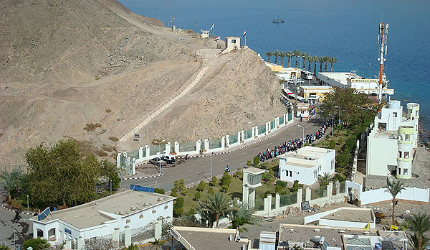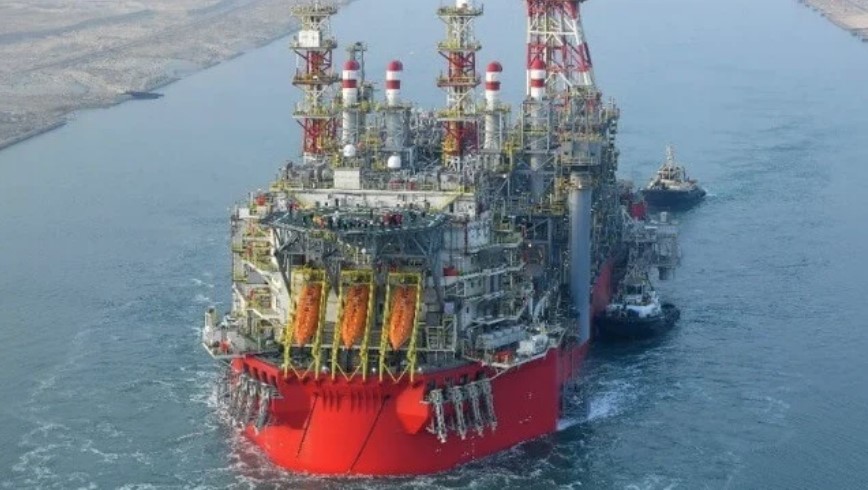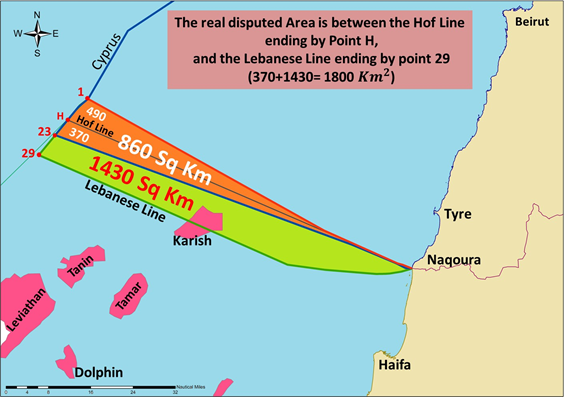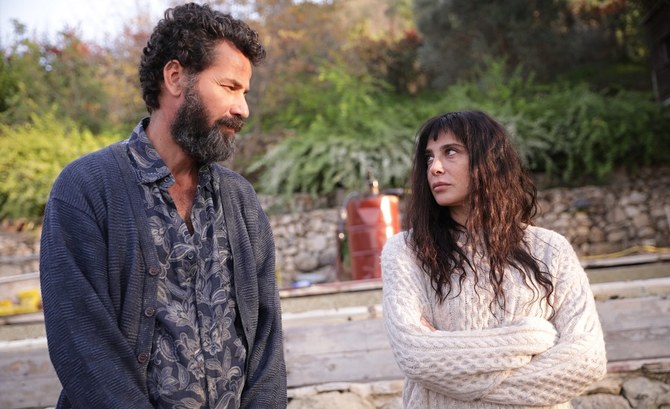
By al-monitor -- Elizabeth Hagedorn -- The Biden administration hasn’t made a final decision on whether a regional plan to transport Egyptian natural gas and Jordanian electricity to Lebanon would run afoul of sanctions on Syria, the top State Department official for the Middle East said Wednesday. The US-endorsed plan would see Egypt and Jordan supply energy resources to crisis-hit Lebanon using a transnational pipeline that runs through Syria. Damascus would receive in-kind compensation for its participation. Egypt has sought assurances that its involvement wouldn't trigger the Caesar Syria Civilian Protection Act and other US sanctions on the Syrian government. The State Department had previously downplayed concerns, with senior State official Victoria Nuland saying in October 2021 that because the deal “falls under the humanitarian category, no sanctions waiver would be required.”
But during a Senate Foreign Relations Committee hearing on Wednesday, State Department Assistant Secretary of State for Near Eastern Affairs Barbara Leaf declined to say whether the four-country energy plan would be exempt from US sanctions or if waivers would be necessary. “We have not seen the final details of these contracts, so I reserve judgment. We’ve made no decision,” Leaf said in response to a question from Sen. Ted Cruz, R-Texas. “We have given what are termed ‘pre-assurances’ that governments may engage in discussions — discussions — about these arrangements,” Leaf said. Why it matters: Some see Syria’s inclusion in the regional energy deals in the context of steps by a number of Arab states to normalize ties with the long-shunned government of Syrian President Bashar al-Assad.


by maritime-executive.com -- The FPSO for Energean's Karish gas project has arrived in position near the boundary between Israeli and Lebanese waters, prompting angry warnings from Lebanon's political leaders about the impending development of the gas field. Karish is located in a boundary area that has been the subject of convoluted negotiations in recent years. Israel insists that it is not disputed: Lebanon has never formally filed a maritime claim to the area surrounding Karish with the United Nations, and Israel does not recognize an ongoing boundary dispute at the site. However, in U.S.-mediated boundary negotiations, Lebanon has vaccilated over whether the area containing the Karish field is its own.
Lebanon and Israel have a longstanding disagreement over a wedge of EEZ measuring about 860 square kilometers on their maritime boundary line. During talks in late 2020, Lebanon sought to expand its EEZ claim to the south by another 1,430 square kilometers (its so-called Line 29 boundary claim), including half of the Karish field. During the period of deep political turmoil in Beirut, the Lebanese government never formally issued a decree to file the Line 29 claim with the United Nations.
In talks in February 2022, Lebanon retracted the Line 29 claim, retreating to its longtime boundary claim (Line 23). Now that Israel is poised to develop Karish, the Lebanese government has reversed course again and revived its Line 29 claim to the waters containing the field.

by Abby Sewell -- restofworld.org -- Mohamad, a former chef turned freelance currency exchanger, begins each day by scrolling through some of the 100 or so groups that have popped up on WhatsApp and other platforms that are dedicated to buying and selling U.S. dollars in Lebanon. Mohamad, who asked not to be identified by his full name because his business is technically illegal, scans the groups to see what the going rate is, while his regular customers ping him looking to buy or sell. Business is brisk. “I have six customers waiting for me now,” he said as he sat for an interview at a café in Beirut’s trendy Badaro neighborhood in April. On that day, someone in Jbeil, a city on the northern coast, posted in one of the online groups wanting to sell $1,200 at a rate of 26,250 Lebanese lira to the dollar. In the Beirut suburb of Bourj Hammoud, someone else wanted to buy $1,500 at a rate of 26,200 lira. Money changers like Mohamad make their profits via commissions and by arbitraging exchange rates — buying low and selling high.
The rates on the “black market,” which is, in fact, the operative market for nearly all transactions in Lebanon, fluctuate hour by hour, while officially the lira remains pegged to the dollar at a rate of 1,507.5 lira to the dollar, as it has been since 1997. Since the collapse of their financial system began in 2019, Lebanese citizens have faced an ever-changing and often dizzying series of hoops they must jump through to get the currency they need. Before the crisis, the dollar and lira were used interchangeably. With the lira rate now fluctuating wildly, many items, particularly imported goods, are now priced in dollars. After the crash, those who had savings in dollars found that they could no longer withdraw them from the bank, while those getting paid in lira found their salaries and savings shrink to a fraction of their former worth.

By arabnews.com -- DUBAI: Lebanese director Mounia Akl’s “Costa Brava, Lebanon” is set to make its North American debut in July. According to The Hollywood Reporter, international film and video distributor Kino Lorber has picked up the North American rights to the dark tale set amid a raging climate crisis in near-future Lebanon. Akl’s directorial debut premiered in the Venice Film Festival’s Orizzonti Extra sidebar last year and stars Lebanese actress and director Nadine Labaki alongside “The Band’s Visit” star Saleh Bakri. Kino Lorber is planning a theatrical release for the film on July 15.
The 32-year-old filmmaker’s haunting and upsetting feature was originally meant to depict a dystopian Lebanon in 2030 at its worst. “I tried to imagine this dystopian future where none of our problems had been solved and the country was an extreme version of itself,” Akl previously told Arab News. “It was somehow a way for me to imagine the worst for myself in the same way you sometimes want to explore your trauma in a cathartic way. It was a way for me to imagine the worst in my mind as a way of avoiding the worst happening in my mind and in life.”
Khazen History


Historical Feature:
Churches and Monasteries of the Khazen family

St. Anthony of Padua Church in Ballouneh
Mar Abda Church in Bakaatit Kanaan
Saint Michael Church in Bkaatouta
Saint Therese Church in Qolayaat
Saint Simeon Stylites (مار سمعان العامودي) Church In Ajaltoun
Virgin Mary Church (سيدة المعونات) in Sheilé
Assumption of Mary Church in Ballouneh
1 - The sword of the Maronite Prince
2 - LES KHAZEN CONSULS DE FRANCE
3 - LES MARONITES & LES KHAZEN
4 - LES MAAN & LES KHAZEN
5 - ORIGINE DE LA FAMILLE
Population Movements to Keserwan - The Khazens and The Maans
ما جاء عن الثورة في المقاطعة الكسروانية
ثورة أهالي كسروان على المشايخ الخوازنة وأسبابها
Origins of the "Prince of Maronite" Title
Growing diversity: the Khazin sheiks and the clergy in the first decades of the 18th century
Historical Members:
Barbar Beik El Khazen [English]
Patriach Toubia Kaiss El Khazen(Biography & Life Part1 Part2) (Arabic)
Patriach Youssef Dargham El Khazen (Cont'd)
Cheikh Bishara Jafal El Khazen
Patriarch Youssef Raji El Khazen
The Martyrs Cheikh Philippe & Cheikh Farid El Khazen
Cheikh Nawfal El Khazen (Consul De France)
Cheikh Hossun El Khazen (Consul De France)
Cheikh Abou-Nawfal El Khazen (Consul De France)
Cheikh Francis Abee Nader & his son Yousef
Cheikh Abou-Kanso El Khazen (Consul De France)
Cheikh Abou Nader El Khazen
Cheikh Chafic El Khazen
Cheikh Keserwan El Khazen
Cheikh Serhal El Khazen [English]
Cheikh Rafiq El Khazen [English]
Cheikh Hanna El Khazen
Cheikha Arzi El Khazen
Marie El Khazen